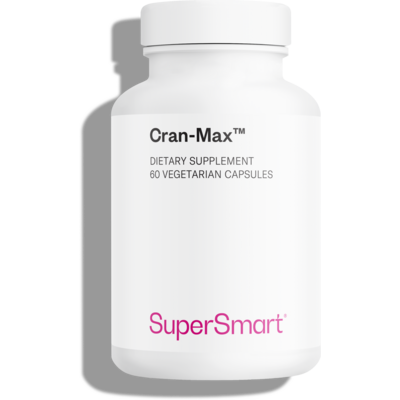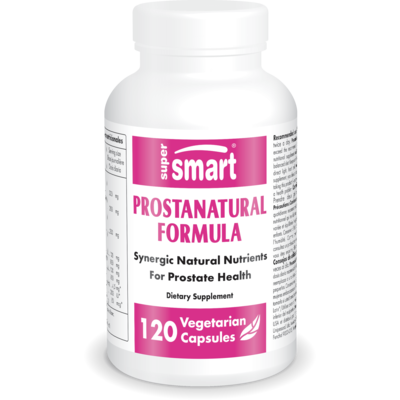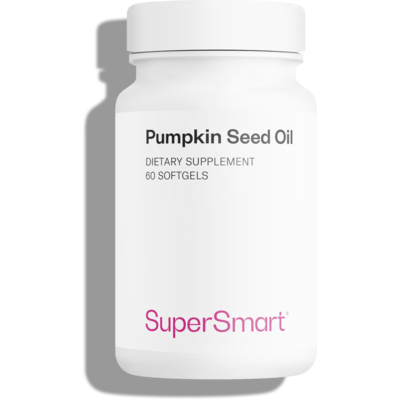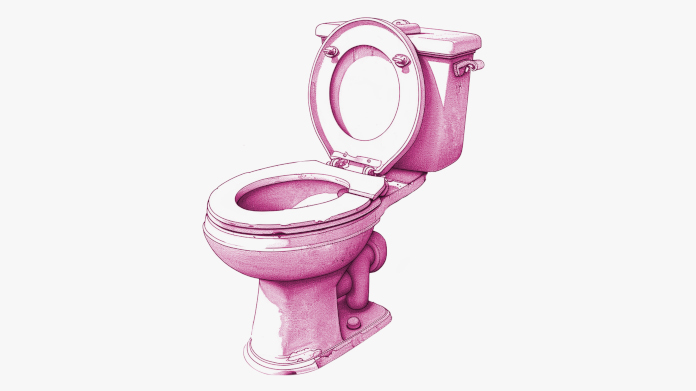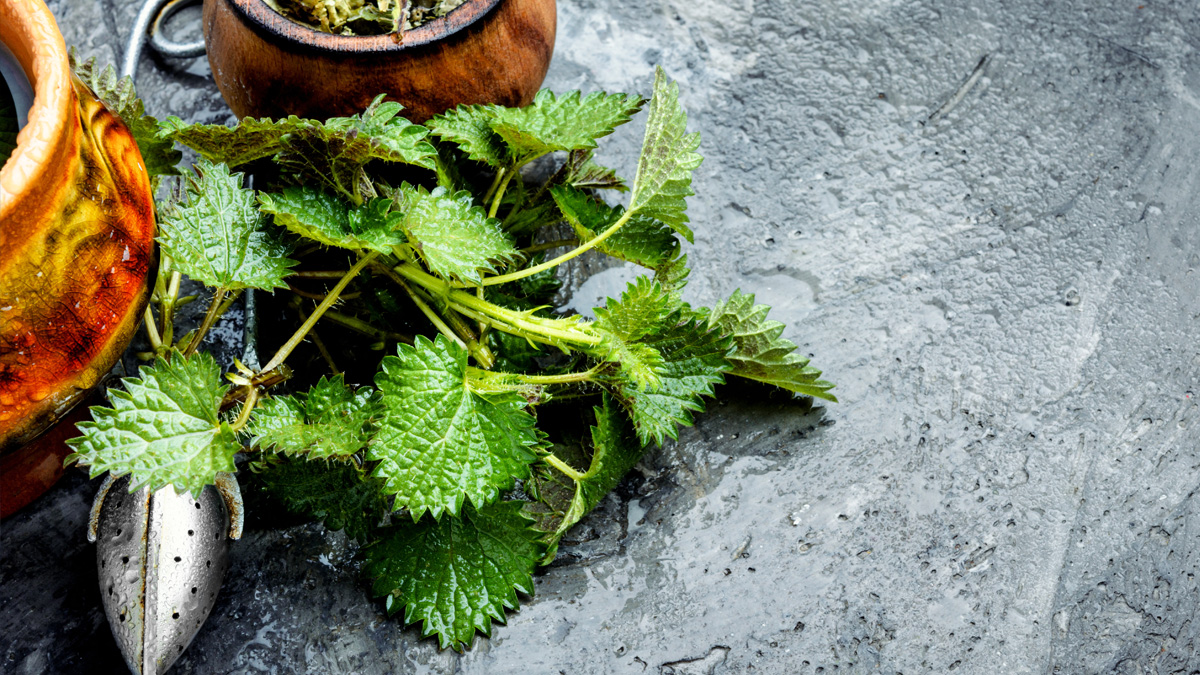What natural treatments are there for preventing nighttime urination?
Do you often have to get up in the night to use the loo? Increasingly common with age, nocturia – or nighttime urination - significantly impairs sleep quality. Discover the natural remedies that can help you (finally) enjoy nights of uninterrupted sleep.

Nocturia: definition and causes
What is nocturia?
As defined by the ICS (International Continence Society), nocturia is the term for when you wake one or more times to pass urine during your main sleep period. To qualify as nocturia, each urination episode must be preceded and followed by a period of sleep (1).
How often should you urinate at night?
When we sleep, our bodies secrete a hormone called vasopressin (also known as anti-diuretic hormone), which is supposed to concentrate urine and reduce the frequency with which we urinate (2). So in theory, this should prevent those nighttime trips to the loo.
But in reality, the mechanism doesn’t always work. It can be disrupted by various factors, not necessarily pathological. For example, we know that the need to urinate at night becomes more pressing as we get older: it’s estimated that 50% of American over-65s, for instance, get up at least once in the night to use the loo (3).
Some doctors define nocturia as anything above two urination episodes a night. But more than their frequency, it’s their impact on physical recovery and quality of life that really matters. When you’re getting up several times a night, your overall sleep period contracts, falling back asleep can be harder, sometimes leading to mood disorders, and there’s an increased risk of nighttime falls in the elderly (4).
The need to urinate at night: what are the causes?
Nocturia is often multifactorial. It may be the result of failure of one or more physiological mechanisms. Three main potential causes have been identified, which sometimes act in tandem (5):
- general polyuria – excessive urine production during the day as well as at night. It is often seen in diabetes or in cases of polydipsia (permanent, intense thirst) (6);
- nocturnal polyuria, characterised by excessive urine production but only at night : it may be associated with heart, circulatory, liver or kidney failure, neurological damage, sleep apnoea, taking diuretic drugs before bed, or simply physical changes related to age (7-9);
- bladder compression or dysfunction which reduces maximum urine volume and increases urination frequency: this is the cause in cases of benign prostatic hyperplasia or prostatitis in men, as well as in urinary infections, bladder stones, overeractive bladder and pregnancy (10-12).
I get up at night to urinate: advice for reducing the frequency of nighttime urination
When nocturnal urination becomes really debilitating, it’s advisable to consult a urologist to establish the cause. In addition to lab tests, starting a urination diary (where you note down the times you urinate and the volume of urine) will help produce an accurate diagnosis.
However, some simple changes in habits can provide some relief in the first instance:
- eat less salt. Consuming too much food high in salt during the day seems to increase the urge to urinate at night by maintaining water retention (13);
- restrict stimulants and spicy foods in your diet. Coffee and tea both have a diuretic effect (promoting urine production) and increase muscle contraction in the bladder (which becomes overactive) (14). Spicy ingredients such as chilli can irritate bladder walls, as can alcohol which also inhibits the action of vasopressin (15);
- drink less in the evening. Reduce your overall fluid intake in the evening whatever the source (water, herbal teas, broths ... ) (16);
- lose weight if necessary. Excess weight increases the risk of metabolic diseases associated with nocturia (hypertension, diabetes…) and induces additional intra-abdominal pressure (17);
- prevent constipation. The accumulation of stools in the intestinal tract can directly ‘weigh’ on the urinary organs, due to the proximity of the bladder to the bowel (18);
- relax. There is a likely two-way link between stress and the urge to urinate at night, especially in the case of an overactive bladder (19);
- consider seeing an osteopath. If you have an overactive bladder, osteopathy may provide an answer by eliminating certain joint or nerve blockages that can impair bladder function, or even by working on strengthening the pelvic floor (with Kegel exercises) which will help with associated urine leakage (20).
Which plants can help prevent nocturia?
Some natural treatments for preventing nighttime urination are more specific to men, while others are suitable for women too.
The ingredients in pumpkin seed, particularly its phytosterols and zinc, have been shown to have a positive effect on the bladder in both men and women. Pumpkin seed helps to maintain good bladder function and normal urine flow (21). It also supports the prostate, by inhibiting the enzyme 5-alpha reductase, responsible for converting testosterone into DHT (excess levels of which lead to an increase in prostate size) (22). If you are having to urinate too often at night, you may therefore want to consider supplementing with pumpkin seed oil (try, for example, the product Pumpkin Seed Oil).
Nocturia accompanied by burning, a feeling of heaviness in the lower abdomen, or difficulty urinating, are all symptomatic of urinary tract infections, which in some women, have a habit of coming back ... In this context, cranberry is often suggested as a natural way of making the environment inhospitable to foreign invaders. Current research suggests that its proanthocyanidins have an anti-adhesion effect on ‘visiting’ pathogens making it hard for them to stick to bladder walls (the cranberry extract supplement Cran-Max®, standardized to 7.2% type A proanthocyanidins, benefits from the patented technology Bio-Shield® for targeted delivery of its active ingredients) (23).
And for our male customers experiencing prostate issues, there are other plants that can help. One example is saw palmetto: used for centuries by Native Americans, it supports urinary function in cases of enlarged prostate, undoubtedly due to its high content of free fatty acids and sterols (24). Another is pygaeum africanum, rich in beta-sitosterols, which similarly helps prevent urinary discomfort in men (25). You can actually find these plant extracts combined synergistically in specific prostate formulations (such as ProstaNatural Formula, which also contains nettle root for additional prostate support, and zinc which helps maintain normal testosterone levels in the blood) (26-27).
SuperSmart ADVICE
References
- Leslie SW, Sajjad H, Singh S. Nocturia. [Updated 2023 Mar 11]. In: StatPearls [Internet]. Treasure Island (FL): StatPearls Publishing; 2024 Jan-. Available from: https://www.ncbi.nlm.nih.gov/books/NBK518987/
- Asplund R. The nocturnal polyuria syndrome (NPS). Gen Pharmacol. 1995 Oct;26(6):1203-9. doi: 10.1016/0306-3623(94)00310-j. PMID: 7590108.
- Leslie SW, Sajjad H, Singh S. Nocturia. 2023 Mar 11. In: StatPearls [Internet]. Treasure Island (FL): StatPearls Publishing; 2024 Jan–. PMID: 30085529.
- Stewart RB, Moore MT, May FE, Marks RG, Hale WE. Nocturia: a risk factor for falls in the elderly. J Am Geriatr Soc. 1992 Dec;40(12):1217-20. doi: 10.1111/j.1532-5415.1992.tb03645.x. PMID: 1447437.
- Fine ND, Weiss JP, Wein AJ. Nocturia: consequences, classification, and management. F1000Res. 2017 Sep 1;6:1627. doi: 10.12688/f1000research.11979.1. PMID: 29026531; PMCID: PMC5583737.
- Fu Z, Wang F, Dang X, Zhou T. The association between diabetes and nocturia: A systematic review and meta-analysis. Front Public Health. 2022 Oct 3;10:924488. doi: 10.3389/fpubh.2022.924488. PMID: 36262225; PMCID: PMC9574227.
- Redeker NS, Adams L, Berkowitz R, Blank L, Freudenberger R, Gilbert M, Walsleben J, Zucker MJ, Rapoport D. Nocturia, sleep and daytime function in stable heart failure. J Card Fail. 2012 Jul;18(7):569-75. doi: 10.1016/j.cardfail.2012.05.002. PMID: 22748491; PMCID: PMC3389347.
- Di Bello F, Napolitano L, Abate M, Collà Ruvolo C, Morra S, Califano G, Capece M, Creta M, Scandurra C, Muzii B, Di Nola C, Bochicchio V, Nocini R, Abbate V, Maldonato NM, Dell'Aversana Orabona G, Longo N, Cantone E. "Nocturia and obstructive sleep apnea syndrome: A systematic review". Sleep Med Rev. 2023 Jun;69:101787. doi: 10.1016/j.smrv.2023.101787. Epub 2023 Apr 29. PMID: 37167825.
- Haddad R, Denys P, Arlandis S, Giannantoni A, Del Popolo G, Panicker JN, De Ridder D, Pauwaert K, Van Kerrebroeck PE, Everaert K. Nocturia and Nocturnal Polyuria in Neurological Patients: From Epidemiology to Treatment. A Systematic Review of the Literature. Eur Urol Focus. 2020 Sep 15;6(5):922-934. doi: 10.1016/j.euf.2020.02.007. Epub 2020 Mar 17. PMID: 32192920.
- Oelke M, Fangmeyer B, Zinke J, Witt JH. Nykturie beim Benignen Prostatasyndrom [Nocturia in men with benign prostatic hyperplasia]. Aktuelle Urol. 2018 Aug;49(4):319-327. doi: 10.1055/a-0650-3700. Epub 2018 Aug 7. PMID: 30086589.
- Foon R, Drake MJ. The overactive bladder. Ther Adv Urol. 2010 Aug;2(4):147-55. doi: 10.1177/1756287210373757. PMID: 21789091; PMCID: PMC3126078.
- Beyazıt A, Hakverdi AU, Gözükara KH. The Effect of Pregnancy on Urinary Symptoms. 2023 Aug 28;15(8):e44232. doi: 10.7759/cureus.44232. PMID: 37772213; PMCID: PMC10523107.
- Monaghan TF, Michelson KP, Wu ZD, Gong F, Agudelo CW, George CD, Alwis US, Epstein MR, Mekki P, Flores VX, Bliwise DL, Everaert K, Vande Walle J, Weiss JP, Lazar JM. Sodium restriction improves nocturia in patients at a cardiology clinic. J Clin Hypertens (Greenwich). 2020 Apr;22(4):633-638. doi: 10.1111/jch.13829. Epub 2020 Feb 12. PMID: 32049435; PMCID: PMC8029872.
- Park J, Lee H, Kim Y, Norton C, Woodward S, Lee S. Effectiveness of Fluid and Caffeine Modifications on Symptoms in Adults With Overactive Bladder: A Systematic Review. Int Neurourol J. 2023 Mar;27(1):23-35. doi: 10.5213/inj.2346014.007. Epub 2023 Mar 31. PMID: 37015722; PMCID: PMC10073005.
- Miotła P, Dobruch J, Lipiński M, Drewa T, Kołodziej A, Barcz E, Baranowski W, Rechberger T, Chłosta PL. Diagnostic and therapeutic recommendations for patients with nocturia. Cent European J Urol. 2017;70(4):388-393. doi: 10.5173/ceju.2017.1563. Epub 2017 Sep 25. PMID: 29410891; PMCID: PMC5791408.
- Oelke M, De Wachter S, Drake MJ, Giannantoni A, Kirby M, Orme S, Rees J, van Kerrebroeck P, Everaert K. A practical approach to the management of nocturia. Int J Clin Pract. 2017 Nov;71(11):e13027. doi: 10.1111/ijcp.13027. Epub 2017 Oct 5. PMID: 28984060; PMCID: PMC5698733.
- Moon S, Chung HS, Yu JM, Ko KJ, Choi DK, Kwon O, Lee YG, Cho ST. The Association Between Obesity and the Nocturia in the U.S. Population. Int Neurourol J. 2019 Jun;23(2):169-176. doi: 10.5213/inj.1938062.031. Epub 2019 Jun 30. PMID: 31260617; PMCID: PMC6606941.
- Yamamoto Y, Furukawa S, Miyake T, Yoshida O, Shiraishi K, Hashimoto Y, Tange K, Hanayama M, Kitahata S, Ninomiya T, Yagi S, Suzuki S, Shibata N, Murakami H, Ohashi K, Tomida H, Takeshita E, Ikeda Y, Hiasa Y. Severity of Nocturia and Constipation in Patients With Ulcerative Colitis. 2023 Nov;181:119-123. doi: 10.1016/j.urology.2023.07.035. Epub 2023 Aug 12. PMID: 37579856.
- Melotti IGR, Juliato CRT, Tanaka M, Riccetto CLZ. Severe depression and anxiety in women with overactive bladder. Neurourol Urodyn. 2018 Jan;37(1):223-228. doi: 10.1002/nau.23277. Epub 2017 Apr 13. PMID: 28407347.
- Franke H, Hoesele K. Osteopathic manipulative treatment (OMT) for lower urinary tract symptoms (LUTS) in women. J Bodyw Mov Ther. 2013 Jan;17(1):11-8. doi: 10.1016/j.jbmt.2012.05.001. Epub 2012 Jun 17. Erratum in: J Bodyw Mov Ther. 2014 Jan;18(1):92. PMID: 23294678.
- Nishimura M, Ohkawara T, Sato H, Takeda H, Nishihira J. Pumpkin Seed Oil Extracted From Cucurbita maxima Improves Urinary Disorder in Human Overactive Bladder. J Tradit Complement Med. 2014 Jan;4(1):72-4. doi: 10.4103/2225-4110.124355. PMID: 24872936; PMCID: PMC4032845.
- Kang XC, Chen T, Zhou JL, Shen PY, Dai SH, Gao CQ, Zhang JY, Xiong XY, Liu DB. Phytosterols in hull-less pumpkin seed oil, rich in ∆7-phytosterols, ameliorate benign prostatic hyperplasia by lowing 5α-reductase and regulating balance between cell proliferation and apoptosis in rats. Food Nutr Res. 2021 Dec 2;65. doi: 10.29219/fnr.v65.7537. PMID: 34984064; PMCID: PMC8693601.
- Howell AB. Bioactive compounds in cranberries and their role in prevention of urinary tract infections. Mol Nutr Food Res. 2007 Jun;51(6):732-7. doi: 10.1002/mnfr.200700038. PMID: 17487930.
- Wilt T, Ishani A, Mac Donald R. Serenoa repens for benign prostatic hyperplasia. Cochrane Database Syst Rev. 2002;(3):CD001423. doi: 10.1002/14651858.CD001423. Update in: Cochrane Database Syst Rev. 2009;(2):CD001423. PMID: 12137626.
- Wilt T, Ishani A, Mac Donald R, Rutks I, Stark G. Pygeum africanum for benign prostatic hyperplasia. Cochrane Database Syst Rev. 2002;1998(1):CD001044. doi: 10.1002/14651858.CD001044. PMID: 11869585; PMCID: PMC7032619.
- Safarinejad MR. Urtica dioica for treatment of benign prostatic hyperplasia: a prospective, randomized, double-blind, placebo-controlled, crossover study. J Herb Pharmacother. 2005;5(4):1-11. PMID: 16635963.
- Prasad AS, Mantzoros CS, Beck FW, Hess JW, Brewer GJ. Zinc status and serum testosterone levels of healthy adults. 1996 May;12(5):344-8. doi: 10.1016/s0899-9007(96)80058-x. PMID: 8875519.
Keywords
3 Days
Quick shipping
Quick shipping; good price. No issues!
Mary McCarty
4 Days
Thr product is very good and is helping…
Thr product is very good and is helping me on my health. Then is always on time
LUGO Luz
7 Days
Buying was fine
Buying was fine. I had problems with the website not recognizing my login info, and had to call to get it fixed. Other than that, everything was good.
David S. Clark
7 Days
Your super maca and super ginseng are…phenomenal
Your super maca and super ginseng are phenomenal supplements that compliment each other when taking them together. Fantastic feeling of well-being and lots of mid day energy without the crash.
Keith Mason
9 Days
I have had amazing results with every…
I have had amazing results with every supplement I've purchased. I am extremely satisfied with this company
kirstin Torres
10 Days
Fine products
Fine products . They are on the leading edge of online supplements. The only issue -so far-is they sometime run out of subscription items.
Jason Argos
12 Days
The ordering process is very user…
The ordering process is very user friendly and the products always come in a timely manner.
CARTER Rhonda
13 Days
The price for Dr
The price for Dr. Pero's AC-11 is reasonable and in line with his views. (my former colleague). Keep it pure.
CAMPBELL Clayton
16 Days
Right on every time.
Right on every time.
Arthur Nicholas
19 Days
They are cheaper than everyone else and…
They are cheaper than everyone else and the shipping was fast. Great company.
Patricia Adams
26 Days
Availability of quality health…
Availability of quality health supplements and it's wide variety is impressive. Ordering is seamless and shipping even during the holidays is well streamlined.
Mohamad Hussein
40 Days
A Product worth waiting for when not…
A Product worth waiting for when not available and then arriving as a surprise!
DOMINIC
42 Days
On time shipping
On time shipping
GEORGE Verne
43 Days
Ordering was easy and the product was…
Ordering was easy and the product was delivered with no problems. Appreciated that I was notified when it would arrive. Thanks!
MascarC
49 Days
Great customer service - responsive …
I ordered from them and my item was unavailable for sometime. I was super happy when they reactivated my order and shipped my item which arrived very quickly. Great customer service.
Ruth Rueter


